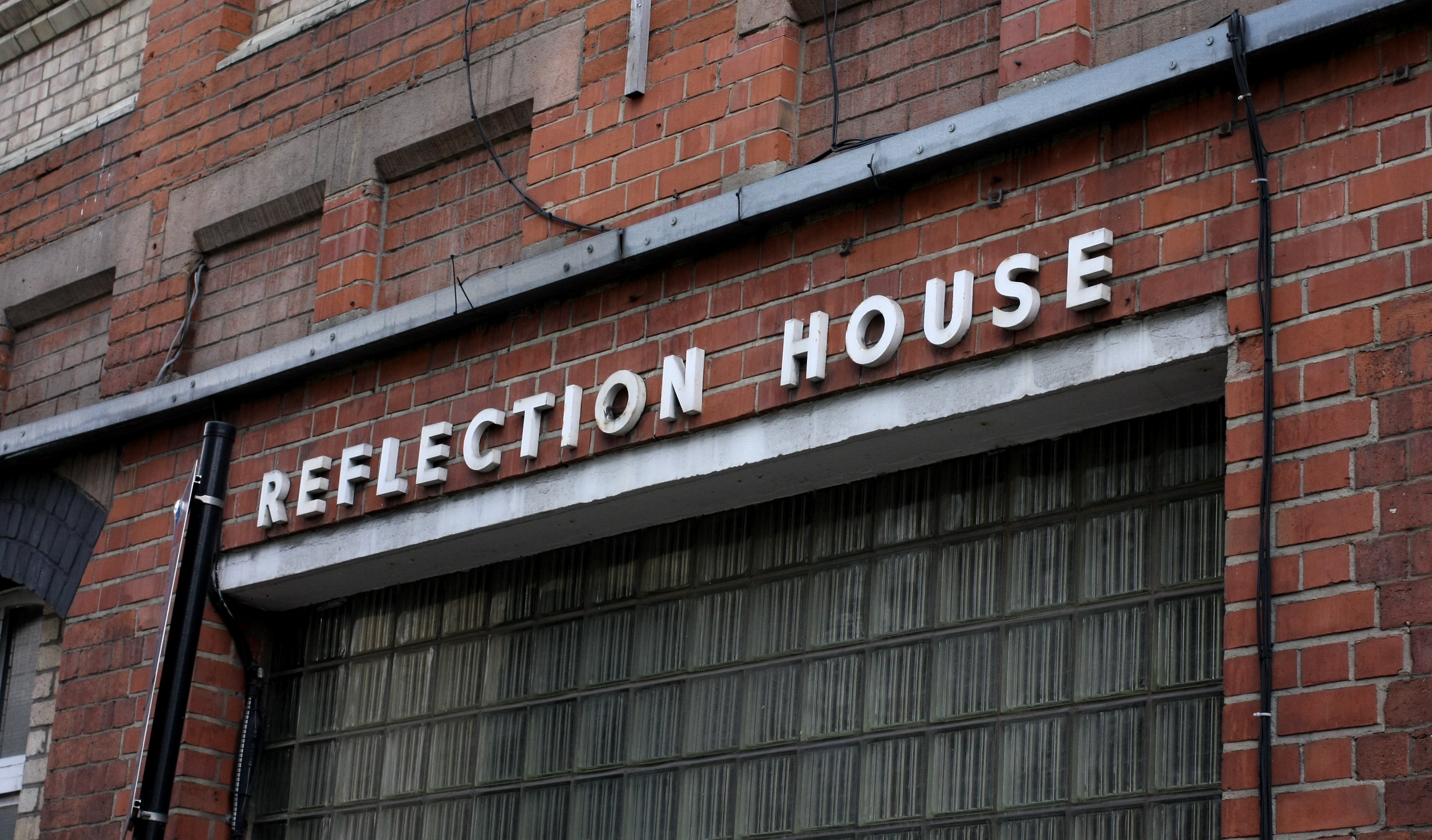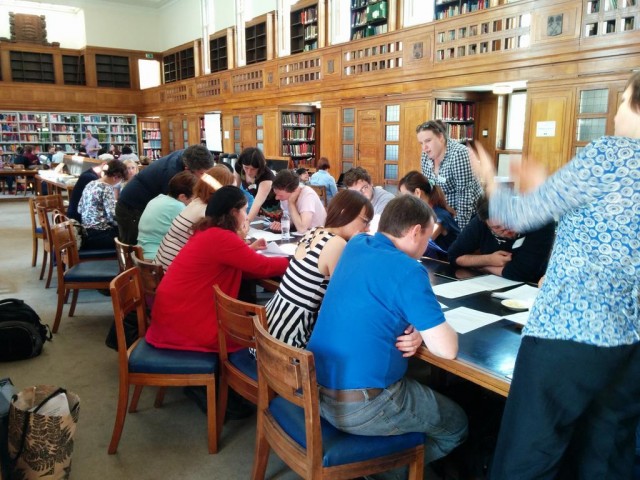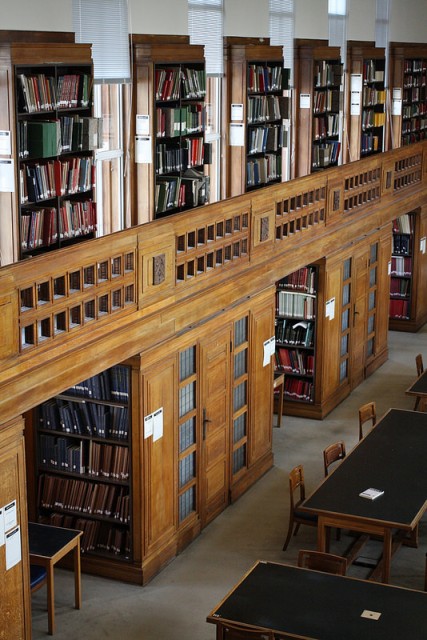While conferencing at ELAG 2016, Simon made this suggestion for improving collaboration among libraries doing user experience (UX) work on their systems:
If we're all doing UX testing on discovery systems (mainly Primo), why not share our findings in an open and collaborative way?
— Simon (@SimonXIX) June 8, 2016
I’ve been thinking on-and-off about the question implied in Simon’s second tweet – the reasons libraries do not generally share results of user experience testing of their systems. Below I discuss some of these, which are drawn from examples from people with first-hand knowledge from academic libraries.
“Not all libraries…”
I know many libraries do share their results and analyses, whether more formally in articles, books or book chapters and conference presentations, or more informally in blog posts, conversations, and social media. I am extremely grateful for any and all sharing of this type.
What about libraries that are doing such work but not reporting it? When I know about such work, though it requires extra effort I have had good success asking colleagues about their findings. People are usually generous with sharing – sometimes surprised in the interest, but delighted to be asked about their work. In my experience the trick to doing this effectively is:
- Knowing that others have been doing something in the first place, for which an active stance towards professional networking helps enormously.
- Finding the best way to engage colleagues on their terms, and making it easy for them to help you. If you’re nearby offer to visit, or set up a video chat; ask for an hour of conversation rather than anything in writing or a presentation. Manage the time and conversation effectively: focus on what you are asking about; be explicit about asking for honest opinions; always ask about lessons learned.
Why we don’t share
Time and money
By this I primarily mean a lack of time and money to refine the work into something publishable by traditional routes, such as a peer-reviewed journal or presenting results at conferences. I think this is a huge barrier, and I have no simple answers. There is an huge qualitative difference between libraries that invest time and money in this way and those that do not, which is only really apparent with experience.
There are alternative routes. For me the actuality of dissemination and sharing always trumps the esteem in which a particular route of communication is held. Some of the most effective project communications I have seen are blog posts that summarize progress and demonstrate the momentum and trajectory of the work simply with clear and engaging text. This is the kind of work I or a team member would expect to do as part of internal project communication, so text can be reused with reworking for an outside audience.
For events, workarounds such as unconferences and similar events are a lower-cost approach, but these aren’t without issues. Events with no registration fee still favour those privileged in various ways. Even if one can attend unconferences these don’t always attract an audience with enough specialist knowledge, or are not promoted in a way that will attract such an audience. This may sound contrary to the Open Space Technology principle that “Whoever comes [are] the right people” (Owen, 2008), but in practice OST principles depend on a lot of work behind the scenes and careful management on the day to be effective.
Culture
By this I mean the overall stance of the library towards engagement with their sector and understanding of the value of sharing, as a cultural factor. Having a budget for conference attendance and other development activity is not enough if your workplace does not value this type of professional engagement in and of itself, or does not have confidence in staff ability or value the work. In practice this may manifest more subtly in general discouragement and ‘lack of permission’ from managers in the organization, or not sending staff operationally involved in project work to events to speak and network with peers.
Competitive edge
I have heard an argument that we should not give away findings that could help competitors elsewhere in our sector, sometimes scaffolded by belief that as contemporary universities exist in a competitive market they should behave more like private companies. I disagree with the ideological foundation of this argument, but it is logical in acknowledging the reality of a market that has been deliberately created and fostered by government. At Library Camp in 2012, Liz Jolly and I argued that:
Universities have a culture of sharing both internally and externally, and also between those working in the same disciplines across institutions. Furthermore, both within and without higher education, librarianship is a particularly collaborative profession.
(Preater, 2012)
We could remove some of the ideological focus, and simply ask if the investment of time and effort to communicate our work might be less worthwhile than the other things we could spend it on. Above I argue that communication strategies in projects or otherwise should provide you with reusable material, but looking at this strategically I think skipping communication is ultimately detrimental to your library.
To be sure, there are benefits to individual staff in building their professional profile and to the library in being seen as a place ‘where things happen’ and viewed as forward-thinking, including in recruiting and retaining staff. Additionally though, I see an advantage in shaping the speed and direction of thinking as a form of technological leadership in the sector, creating the ‘discursive formation’ (in the sense Foucault describes, for example in part II of The archaeology of knowledge, 1972) of user experience rather than waiting for others to do so.
In communicating our work and engaging our community in discourse we define the content of the discursive formation, of the body of knowledge, in what is still a relatively new and not yet fully-established area. Communication has power in and of itself in bringing in to existence this body of knowledge, and while the practice of user experience is contested, early movers are able to establish how the ‘truth’ of this practice is created and sustained, in our particular context.
For me this idea explains some of the meaning behind practitioners such as Andy Priestner stating, two years ago, that “UX in libraries is a thing now” (2014, emphasis mine), and from experience I would gauge this kind of engagement as putting you between two to three years ahead of libraries that are not doing so.
External validity or being ‘too special’
In this I include disbelief in the external validity of the work, or belief in the necessity of such validity as a precursor to sharing. ‘External validity’ means the extent to which the findings from particular research can be generalized beyond the specific context of the work. I first heard this argument when I was a participant in a library usability study, and naively asked the librarians how they were going to share their results – turns out they weren’t. Some libraries are indeed unusual in themselves, or attract an unusual user base, or both, but there is also a cultural aspect to this problem. Without deliberately maintaining wider awareness, we can lose perspective and end up believing it ourselves: thinking our service is ‘very complex’ or our situation ‘highly unusual’ when it is not particularly so.
My counter-argument is the commonalities between library services and membership mean ideas and concepts are often very transferable. Include some caveats or ‘health warnings’ on your results by all means, but let us weigh things up. Let us include you in our ongoing analysis. This is one reason I value making the theoretical underpinning of the approaches we use in our work explicit when describing what we are doing.
Fear of criticism, lack of confidence in the work
In this reason I include anything in the general space of a wish not to have one’s work critiqued, research methods problematized, or particular choices judged by others in the community. Perfectionism on our part can also play into and amplify this. All engagement in professional discourse includes some measure of risk-taking as there is implicit openness to criticism: speaking at a conference or using a platform or network where replying is easy invites replies. Criticism is tempting as it can be relatively easy for a clever person to say something high-impact. You could do as Ian suggests and start a blog and turn off the comments, but people can (and do) comment on your work elsewhere…
Sometimes you read Twitter and think:
"If you don't want a critique of your words, start a blog, switch off comments."
Job done.
— ian (@ijclark) May 31, 2016
I experienced this recently (with my manager and her manager in the room) when a recording of a user from a piece of UX research was shown that could be interpreted as strongly critical of my project team’s work. This was extremely difficult to accept at the time, but on considered reflection seeing an interpreted piece of feedback was valuable, as it spurred ongoing development and provoked questioning of design choices that had seemed well-founded based on our research.
My recommendation is to trust your judgement if you are on top of your professional development, spend adequate time reflecting-on-action, and test your ideas by taking a critical stance toward your methods and work – including opinions and perspectives from peers. On this subject I recommend Elly’s post on ‘professional confidence’ (O’Brien, 2015). This is a great post that really bears re-reading as part of reflective practice in judging our own expertise and focusing where best to develop skills.
Concluding thoughts
Simon is right in that there is no central location for sharing results of our user experience work. I would love to see something like this created, with low or no barrier to entry so all practitioners could contribute. I think for academic libraries a space on the helibtech wiki could be a good starting point for collaboration. This is a slightly selfish request as in my workplace we maintain a list (a wiki page) of reports, presentations, industry white papers and so on about systems user experience, and used these in developing and shaping ideas for our ongoing research and development.
Absent such a location, I want to encourage practitioners to share their work. We want to hear what you have to say – share your methods, results, and conclusions where you can, as doing so contributes to and shapes discovery user experience as a professional practice.
References
Foucault, M. (1972) The archaeology of knowledge. New York, NY: Vintage.
O’Brien, E. (2015) ‘Professional confidence and “imposter syndrome”‘, Elly O’Brien, June 29. Available at: https://web.archive.org/web/20160921152614/https://ellyob.wordpress.com/2015/06/29/professional-confidence/
Owen, H. (2008) Open space technology: a user’s guide. 3rd edn. San Francisco, CA: Berrett-Koehler.
Preater, A. (2012) ‘Free and Open Source software and cultural change, at Library Camp 2012’, Ginformation Systems, 15 October. Available at: https://www.preater.com/2012/10/15/free-software-and-cultural-change-at-libcampuk12/
Priestner, A. (2014) ‘Why UX in libraries is a thing now’, Business Librarians Association conference, Leicester, 11 July. Available at: http://www.slideshare.net/AndyPriestner1/why-ux-in-libraries-is-a-thing-now-36899649




